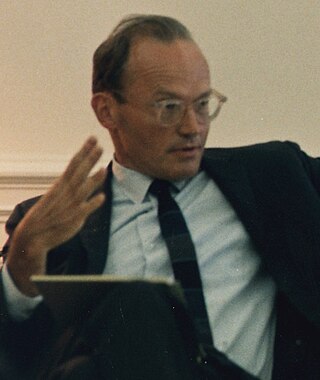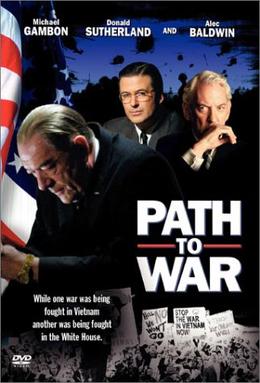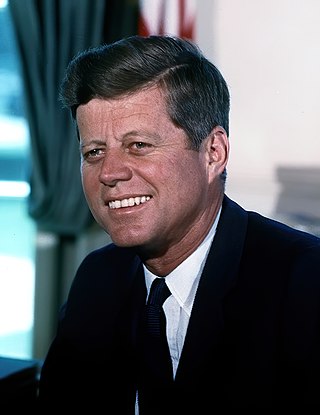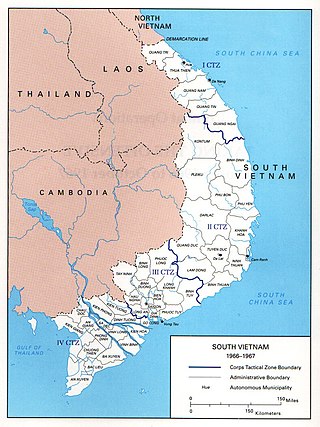In The Fog of War
Over the course of the documentary, Morris distills McNamara's philosophy of war into eleven basic tenets: [10]
Lesson #1: Empathize with your enemy.
McNamara repeats this sentence several times throughout the documentary. He discusses a moment during the Cuban Missile Crisis when he and Kennedy were trying to keep the United States out of war, but General Curtis LeMay wanted to invade Cuba. Kennedy received two messages from Nikita Khrushchev during the Crisis, which McNamara refers to as the "soft message" and the "hard message." He says the first message sounded like it came from a "drunk man or one under a lot of stress" and stated that, if the United States guaranteed it would not invade Cuba, the missiles would be removed, while the second stated that, if the United States attacked Cuba, "we're prepared to confront you with masses of military power." [11] Llewellyn Thompson, a former US ambassador to Moscow who knew Khrushchev personally, urged Kennedy to respond to the soft message, as he believed Khrushchev would be willing to remove the missiles if, afterward, he could draw attention away from the fact that he had failed to establish nuclear weapons in Cuba by taking credit for saving Cuba from being invaded by the US. Kennedy eventually agreed with Thompson and the situation was resolved without further escalation.
Lesson #2: Rationality alone will not save us.
McNamara emphasizes that it was luck that prevented nuclear war—rational individuals like Kennedy, Khrushchev, and Castro came close to destroying themselves and each other. He states that the possibility of nuclear destruction still exists today.
Lesson #3: There's something beyond one's self.
This lesson refers to McNamara's private life. He states that "there's something beyond one's self and a responsibility to society" while discussing when he started to court his wife, Margaret Craig McNamara, and had a child. Around this time, WWII began and McNamara became the youngest assistant professor at Harvard.
Lesson #4: Maximize efficiency.
McNamara was brought back from the Eighth Air Force and assigned to the 58th Bomb Wing. He flew in some of the first B-29s, which, it was hoped, would be able to destroy targets much more efficiently and effectively than earlier bombers, and was responsible for analyzing bombing operations and making recommendations for improvements.
Lesson #5: Proportionality should be a guideline in war.
McNamara talks about the proportions of cities destroyed in Japan by the US before the dropping of the nuclear bomb, comparing the destroyed Japanese cities to similarly-sized cities in the US: Tokyo, roughly the size of New York City, was 51% destroyed; Toyama, the size of Chattanooga, was 99% destroyed; Nagoya, the size of Los Angeles, was 40% destroyed; Osaka, the size of Chicago, was 35% destroyed; Kobe, the size of Baltimore, was 55% destroyed; etc. He says LeMay once said that, had the United States lost the war, they would have been tried for war crimes, and agrees with this assessment.
Lesson #6: Get the data.
McNamara worked at Ford in an executive position and commissioned studies on subjects like buyer demographics, the causes of accidents, and ways to make cars safer. He was chosen to replace Henry Ford II as president of the company, the first person outside the Ford family to hold that position, though he quit after five weeks to become Kennedy's Secretary of Defense, having first declined an offer to be Secretary of Treasury.
Lesson #7: Belief and seeing are both often wrong.
McNamara affirms Morris' framing of lesson 7 in relation to the Gulf of Tonkin incident: "We see what we want to believe."
Lesson #8: Be prepared to reexamine your reasoning.
McNamara says that, even though the United States is the strongest nation in the world, it should never use that power unilaterally: "if we can't persuade nations with comparable values of the merit of our cause, we better reexamine our reasoning."
Lesson #9: In order to do good, you may have to engage in evil.
McNamara says: "Recognize at times we have to engage in evil, but minimize it."
Lesson #10: Never say never.
McNamara believed the ultimate responsibility for the Vietnam War was on the president and says that, had Kennedy lived, the situation would have unfolded more desirably. In 1968, he resigned as Secretary of Defense (or was fired) and became president of the World Bank.
Lesson #11: You can't change human nature.
McNamara talks about the "fog of war" and how many things only become clear in hindsight.

















